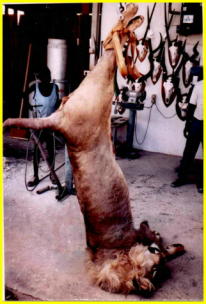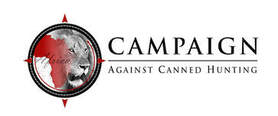
With the heart of a lioness
One volunteer’s journey of discovery in the dark heart of the canned lion hunting industry.
The three day animal advocacy course which I offer at the Karoo wildlife centre has the advantage of bringing me into contact with volunteers who know much more about cup petting then I do.
One of the attendees of my recent course was a lady who I shall call Ronnie and she is the author of the book titled “With the Heart of a Lioness.)
She was kind enough to give me a one-minute video clip about her book. https://youtu.be/a7sV8MJRML4
I am frequently approached by volunteers to South Africa wanting advice on ethical destinations. I always say that the rule of thumb is: avoid any facility where breeding takes place.
Unfortunately, there seems to be an insatiable demand - in particular among the tender gender - to cuddle a lion cub.
Ronnie’s book is a scrupulously careful and detailed account of her experiences at a lion farm in the Free State province of South Africa. On one level it is a guidebook for volunteers; where to go, what to do, how to behave around animals, particularly lions, and everything else that a serious volunteer would need to know.
But on a deeper level the book relates a journey of discovery; how one dedicated animal lover who believed that she was doing conservation work eventually opened her eyes to the ugly reality of lion farming and canned hunting in South Africa.
Little by little she describes how she comes to understand that she has been duped. Here are some of the grandiose claims and fine sounding sentiments which one sordid and squalid lion farm puts out to volunteers to entice them to bring their money and come:
“all cubs are hand raised which boost their survival rate and creates a manageable and sustainable program.
We conserve the Bengal tiger and increase awareness about tiger conservation.
Our mission is to sustain the genetic pool of the lion”….
With such skilful and astute deception, lion farms continue to attract gullible animal lovers from overseas. Too late they discover that the extortionate fees that they are charged, which they thought were promoting conservation, in fact enable lion farmers to externalise the cost of rearing their lions to huntable size. And in the process, put local previously disadvantaged South Africans out of work.
The author relates a litany of abuse at every stage of the doomed lions’ lives; reckless breeding, appallingly cruel and amateurish animal husbandry, neglect , cruel exploitation - and all under the cloak of ‘conservation.’
Everything about this sick industry is fraudulent. Volunteers are fraudulently deceived into thinking that they are promoting lion conservation; canned lion hunting is fraudulently claimed to be ‘saving wild lions’; the lion bones that are sold to Asia are fraudulently represented as tiger bones in order to produce tiger bone wine and cake which is then fraudulently passed off to the consumer as a health medicine.
All in all lion farming is a business model built upon routine cruelty to animals which flourishes behind a Bell-Pottinger facade of conservation.
To animal lovers who are thinking of volunteering at any facility in South Africa where breeding takes place and there are cubs to pet, I urge them to read Ronnie’s book first, and then take the time to come to the Karoo wildlife centre for three nights in order to be educated on how the hunting industry has invaded and occupied conservation space in South Africa.
www.cannedlion.org/volunteers.html
